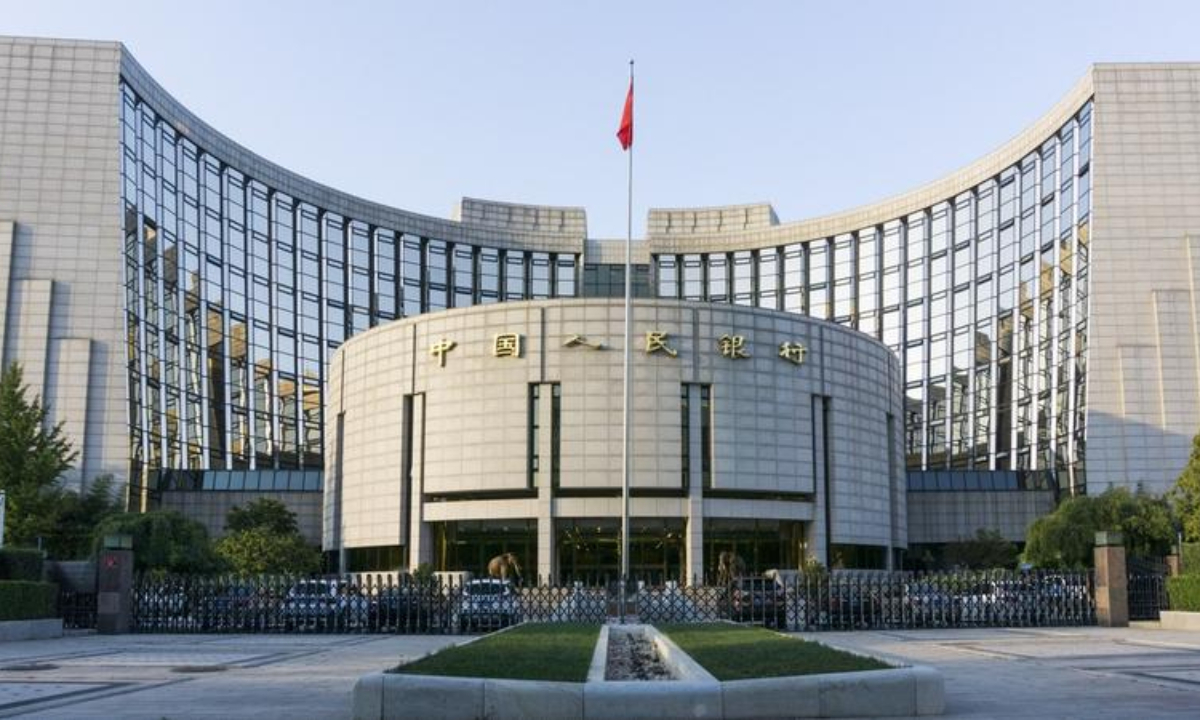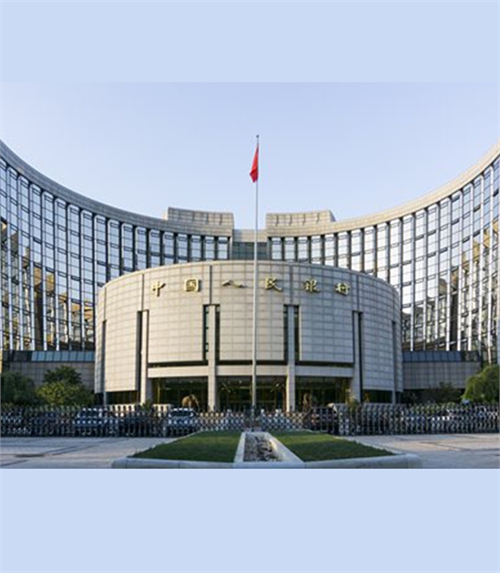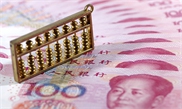PBC says there is no deflation or inflation foundation in China; liquidity 'reasonable and sufficient' in Q1
LPR stays unchanged in April with sufficient liquidity

The headquarters of the People's Bank of China in Beijing Photo: IC
Chinese central bank officials on Thursday said that there is no basis for long-term deflation or inflation in China and liquidity was reasonably sufficient in the first quarter, in response to claims by some Western media that China is entering a deflationary cycle.
The remarks came as China kept its benchmark lending rates unchanged for an eighth straight month in April. With the recent recovery of the domestic economy and rebound in the real estate market, it has reduced the urgency of an imminent easing of monetary policy, experts said.
Consumer prices are still rising moderately, broad money supply is growing relatively fast, and the economy continues to improve, all of which offer a different picture from deflation, Director-General of the Monetary Policy Department of the People's Bank of China (PBC) Zou Lan said at the central bank's first-quarter financial statistics press conference on Thursday.
Zou noted that in the medium and long term, China's overall economic supply and demand are basically balanced. Monetary conditions are reasonable and moderate, people's expectations are stable, and there is no basis for long-term deflation or inflation.
New statistics show that economic activity picked up in the first three months of 2023.
The Chinese economy started off the year with better-than-expected 4.5 percent year-on-year GDP growth in the first quarter, according to data released by the National Bureau of Statistics (NBS).
Broad M2 money supply grew 12.7 percent in March from a year earlier, while outstanding yuan loans expanded 11.8 percent, the highest in 17 months.
The real estate market showed positive changes, transaction activity increased, and many indicators marginally improved compared with the fourth quarter of last year.
China's consumer price index rose only slightly in March by 0.7 percent year-on-year but was down 0.3 percentage points from February.
Consumer demand is expected to pick up further, and price increases in the second half of the year may gradually return to the average level of previous years, and the annual CPI will show a "U"-shaped trend, Zou said.
Ruan Jianhong, spokesperson of the PBC, said on Thursday that overall financial operations in China were generally stable in the first quarter and liquidity was reasonably sufficient.
As a demonstration of reasonable and sufficient liquidity, China kept its benchmark lending rates unchanged for the eighth straight month in April, with the economy already benefiting from policy actions deployed in advance.
On Thursday, the one-year loan prime rate (LPR) was kept at 3.65 percent, while the five-year LPR was unchanged at 4.30 percent.
The April LPR rate held steady, which was in line with expectations, Zhou Maohua, an economist at Everbright Bank, told the Global Times on Thursday.
"The domestic economy is recovering steadily, and the real estate market is stabilizing and picking up. All this reduces the incentive for banks to lower lending rates," he said.
Dong Ximiao, chief researcher at Merchants Union Consumer Finance Co, told the Global Times on Thursday that interest rate cuts are neither necessary nor urgent, due to a strong demand for credit in the real economy.
"Since the beginning of this year ... there has been a significant recovery in financing demand and a decline in financing costs," Dong said.
Experts attributed the rapid credit expansion to the development of new financial instruments and the policy guidance of financial management departments.
As of the end of March, China had launched 17 structural monetary policy tools and effectively guided financial institutions to rationally extend loans and channel financial resources to major areas and weak links, Zou of the PBC said.
The PBC will accurately and forcefully implement a prudent monetary policy, maintain the stability of long-term tools such as re-lending and rediscounting, and provide continuous support for key areas and weak links, Zou said.


